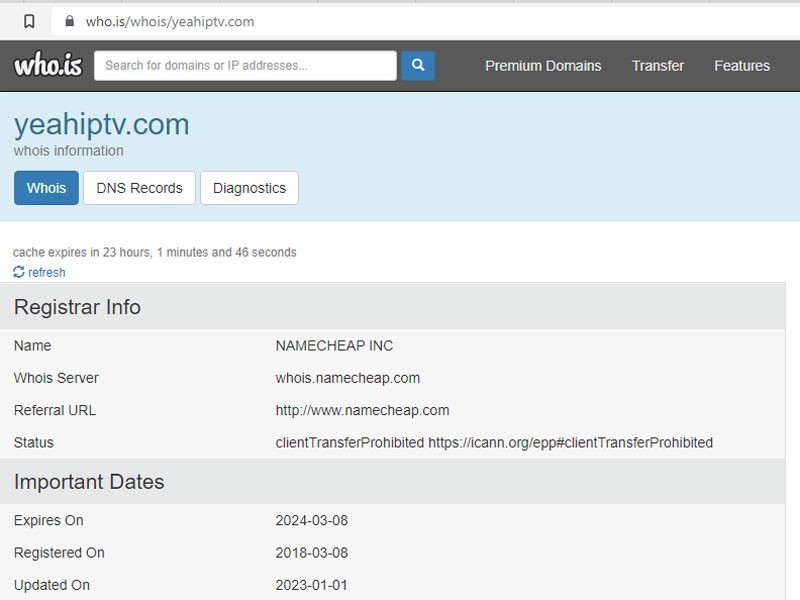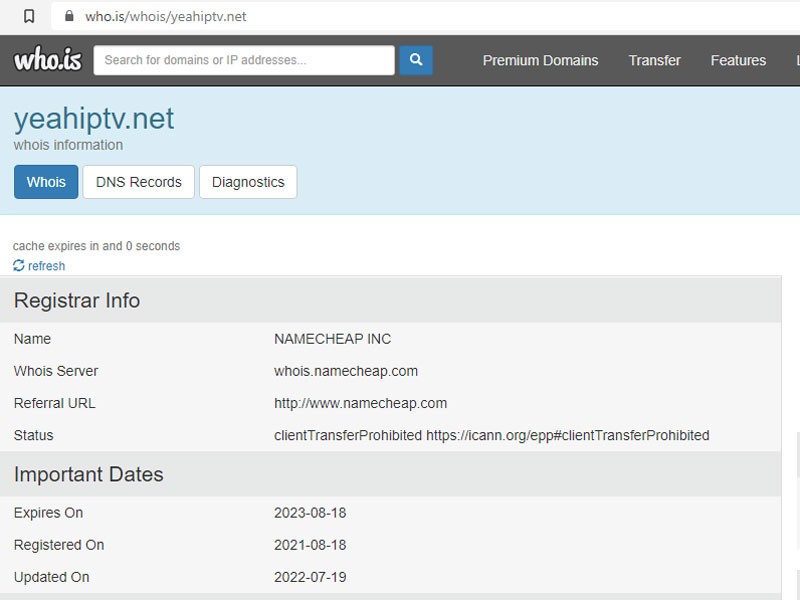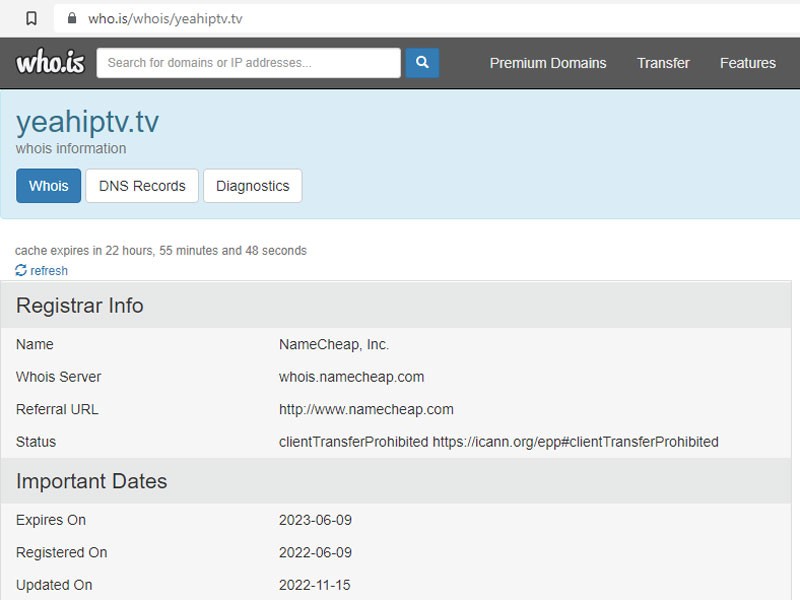
UPDATE: The current most active imposter is: yeahiptv.io (domain registered in 2025 year and the owners are well known imposters for many popular services).
Website spoofing is a growing concern for internet users today. With the increasing number of online transactions and personal information being shared on the internet, it's more important than ever to be aware of the dangers of scam and spoofed websites. In this blog post, we will discuss what website spoofing is, why it's a problem, and how you can protect yourself from it.
Website spoofing is a type of scam where attackers create a fake website that looks similar to a legitimate website in order to steal personal information, passwords, or money from unsuspecting users. This can be accomplished by using a different domain name that is similar to a legitimate website or by creating a fake website that is designed to look like a legitimate site.
The attackers behind these spoofed websites often use tactics like phishing emails or pop-up advertisements to lure users to the fake site. Once the user enters their personal information or login credentials, the attacker can use this information for malicious purposes, such as identity theft or unauthorized transactions.
As a legitimate business website in the streaming service and entertainment field, we take pride in our commitment to providing high-quality content and excellent customer service. We have been serving our customers since 2018 and have built a strong reputation in the industry. Our customers trust us to deliver the best streaming experience, and we work hard to maintain that trust every day.
Unfortunately, in recent times, new competitors have emerged who are trying to steal our identity by creating fake websites that look similar to ours. These websites are often used to trick our customers into entering their personal information or login credentials, which can be used for malicious purposes.
We are deeply concerned about this trend and are taking steps to educate our customers about the dangers of website spoofing and how to protect themselves. By working together, we can protect the privacy and security of our customers and continue to provide the high-quality service they expect from us.
In general, it's important to be cautious of any website that asks for personal information, even if it appears to be a legitimate site. To protect yourself from online fraud, it's recommended to verify the website's URL before entering any sensitive information! Ours, one and only official YeahIPTV website is: yeahiptv.com
One of the most popular website for IPTV information - Troypoint has writen article about these scam services.
You can read more below:
https://troypoint.com/yeah-iptv-website-scams/
A proof of domain is a method of verifying that an individual or organization owns or has control over a specific domain name. This verification process helps to ensure the security and authenticity of websites and online transactions.
Proof of domain can take various forms, such as the inclusion of specific DNS records or the placement of a unique file on the website's server. This helps to demonstrate that the owner of the domain has access to and control over the website, reducing the risk of online fraud and spoofing.
In today's digital landscape, proof of domain is becoming increasingly important for businesses and individuals alike, as it provides a way to establish trust and credibility in an increasingly complex and challenging online environment.

As you can see, our domain is registered in 2018 year.
Now, let's see those scam websites below:


As you can see from the official who.is domain website, the domains of these con artists are registered in 2021 and 2022 year.
Conclusion:
Website spoofing is a serious threat that can cause significant harm to internet users. By being aware of the dangers and taking steps to protect yourself, you can reduce the risk of falling victim to a spoofed website. Some ways to protect yourself include:
Reference: